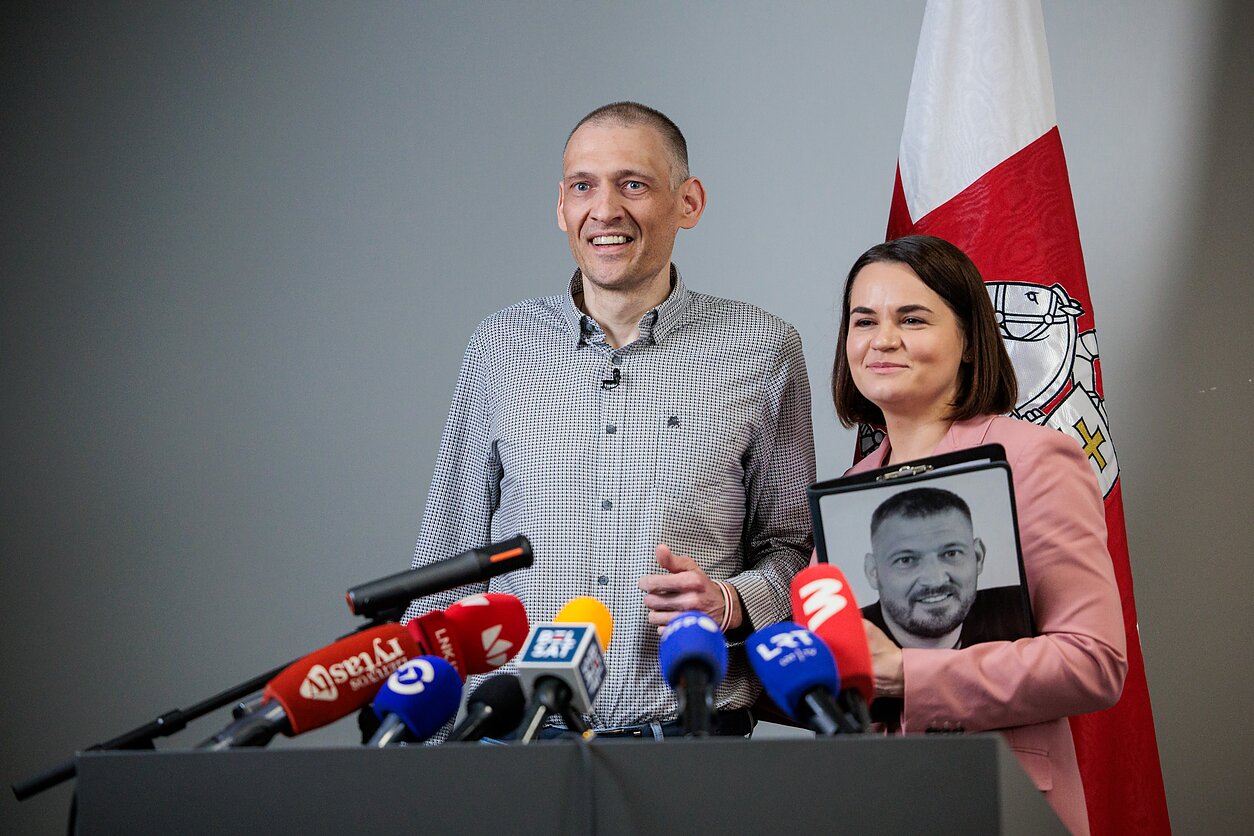Belarus opposition figure Tsikhanouski freed after nearly five years in prison

Tsikhanouski was among 14 political prisoners released over the weekend, according to independent Belarusian outlet Nasha Niva.
Belarusian opposition activist Syarhei Tsikhanouski has been released from prison following a presidential pardon, nearly five years after his arrest triggered widespread protests against President Alexander Lukashenko’s rule.
His wife, Svetlana Tsikhanouskaya who stepped into the political spotlight after his detention and has since led the opposition in exile shared a video on Saturday showing the couple embracing after his unexpected release.
In a message on social media, she expressed overwhelming joy: “My husband is free! Words cannot express how full my heart is.”
Tsikhanouski was among 14 political prisoners released over the weekend, according to independent Belarusian outlet Nasha Niva.
The move came just hours after Keith Kellogg, a special envoy of former U.S. President Donald Trump, held talks with Lukashenko in Minsk marking the most senior contact between U.S. officials and the Belarusian government since the violent post-election crackdown in 2020.
A popular blogger turned opposition figure, Tsikhanouski was arrested in 2020 shortly after declaring his intent to run for president.
His detention sparked mass unrest, and his wife took his place on the ballot, emerging as the face of the democratic opposition.
He was later sentenced to 18 years in prison on charges widely condemned as politically motivated.
Following his release, Tsikhanouskaya thanked Kellogg, Trump, and European allies for their role in securing her husband’s freedom but stressed that the struggle is far from over: “There are still 1,150 political prisoners in Belarus. We will not stop until all are free.”
The release comes amid signs that Lukashenko may be seeking to soften Belarus’s pariah status on the global stage.
Since 2024, more than 250 political detainees have reportedly been pardoned, though prominent figures like Maria Kolesnikova and Viktor Babariko remain behind bars.
Belarus experienced its largest-ever protests in 2020 after Lukashenko claimed an implausible 80% victory in the presidential election.
The brutal suppression that followed drew international condemnation and pushed Belarus closer to Russia a relationship that proved critical for Moscow when Belarus became a staging ground for Russia’s full-scale invasion of Ukraine in early 2022.
Despite growing calls for reform, Lukashenko further tightened his grip on power, securing a seventh term in office in a January election widely dismissed by Western observers as fraudulent.
